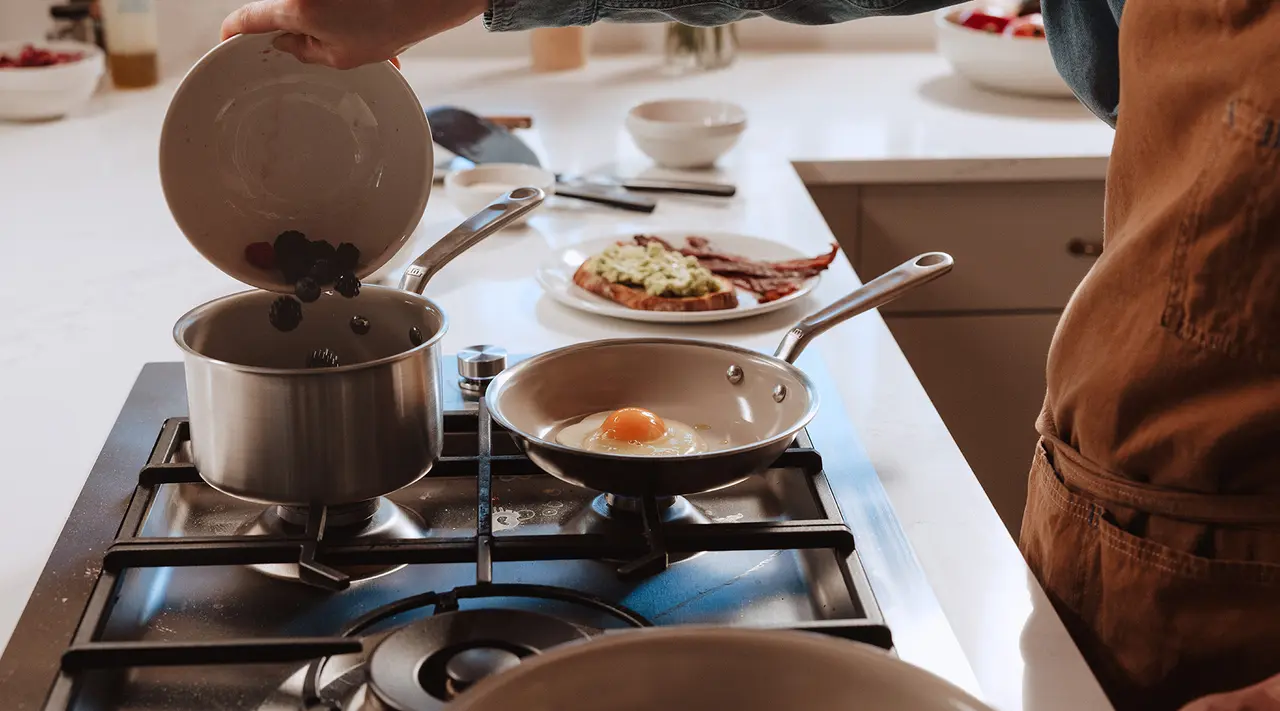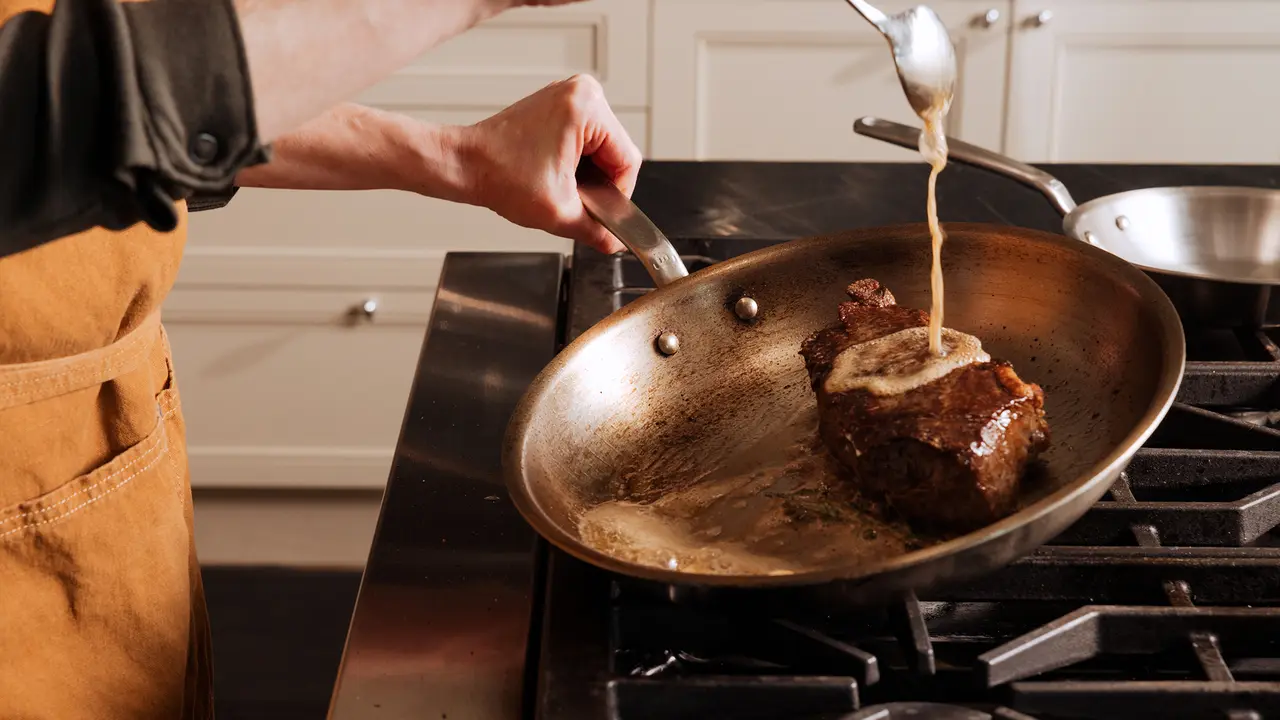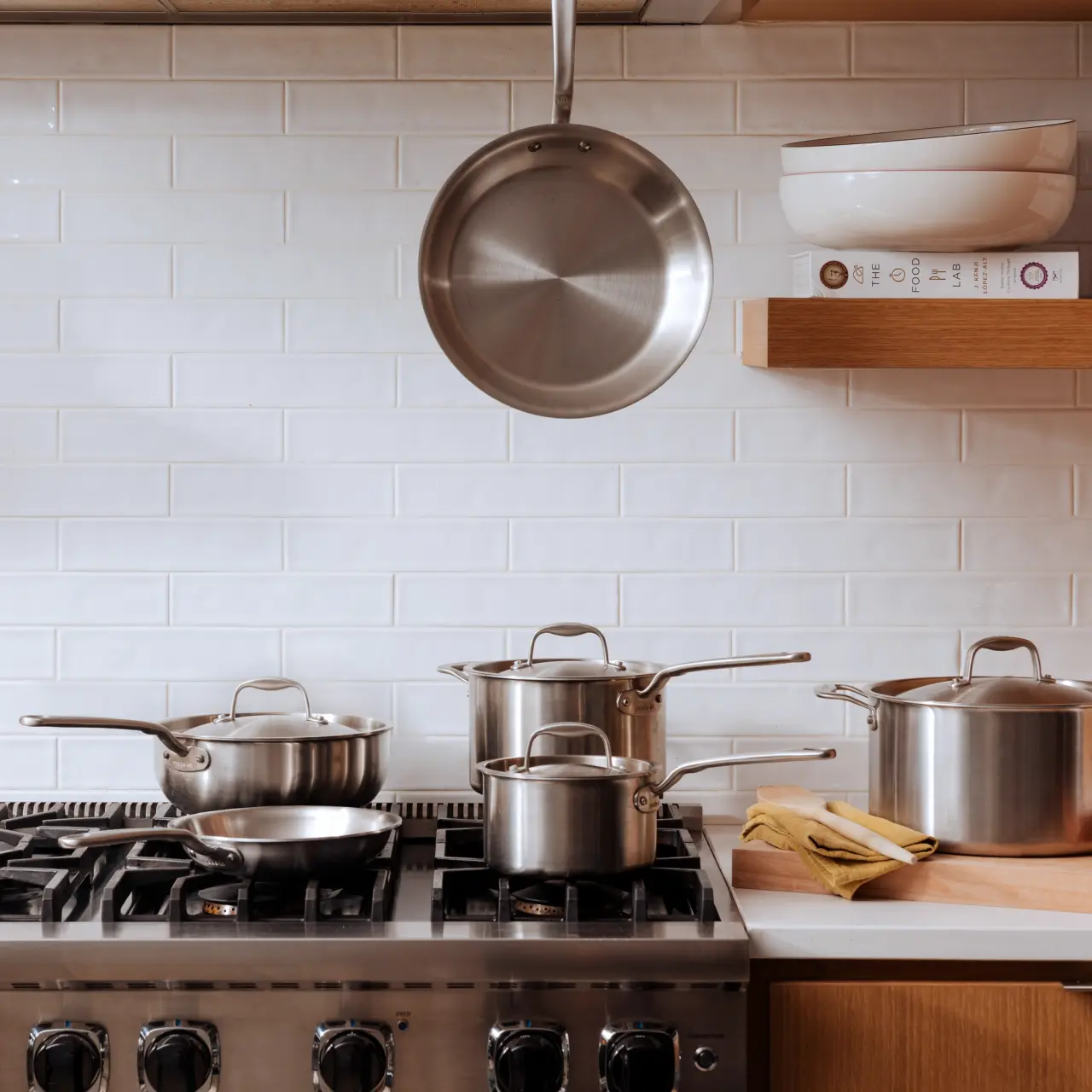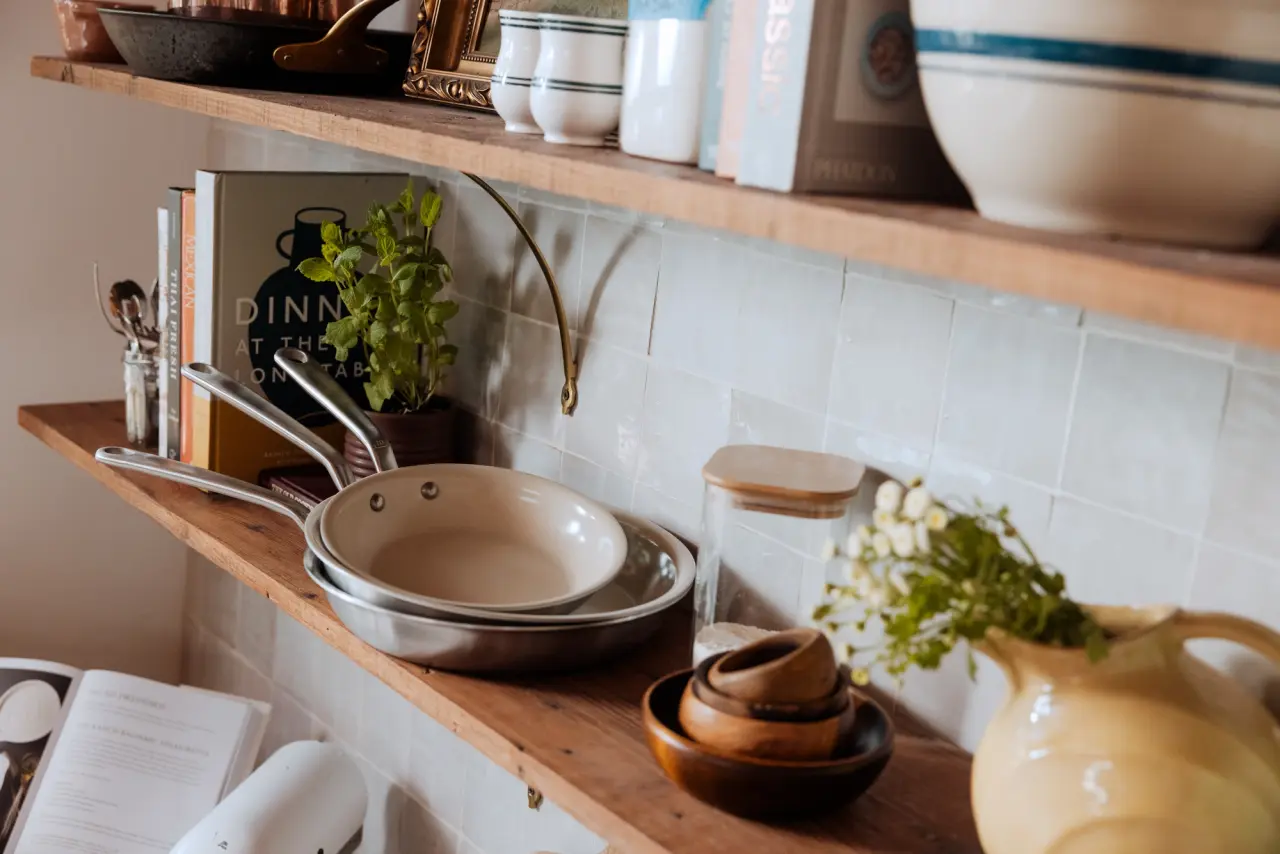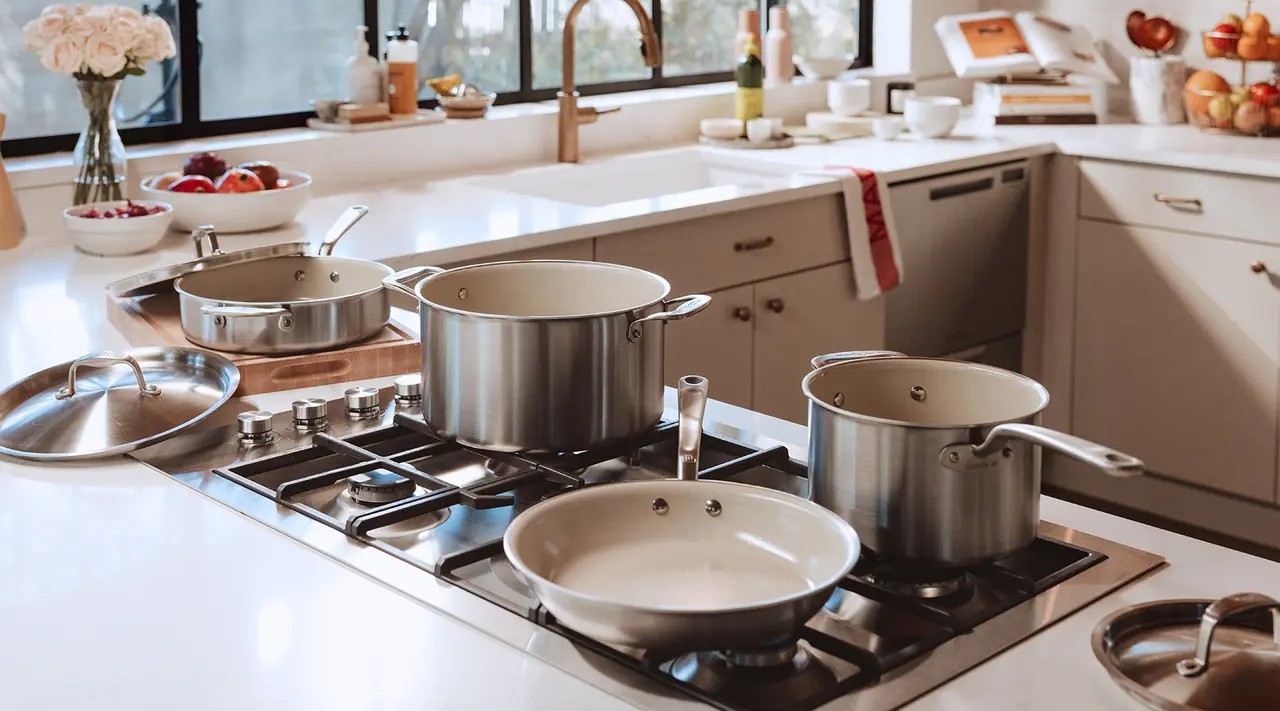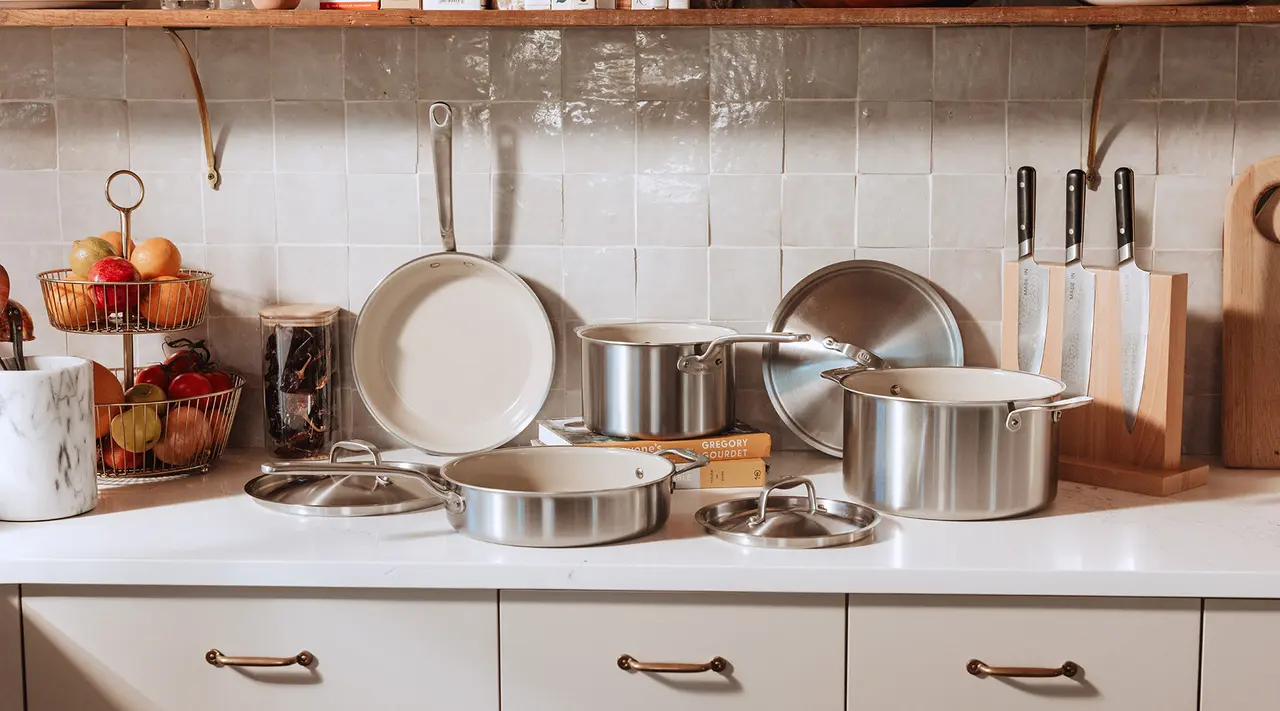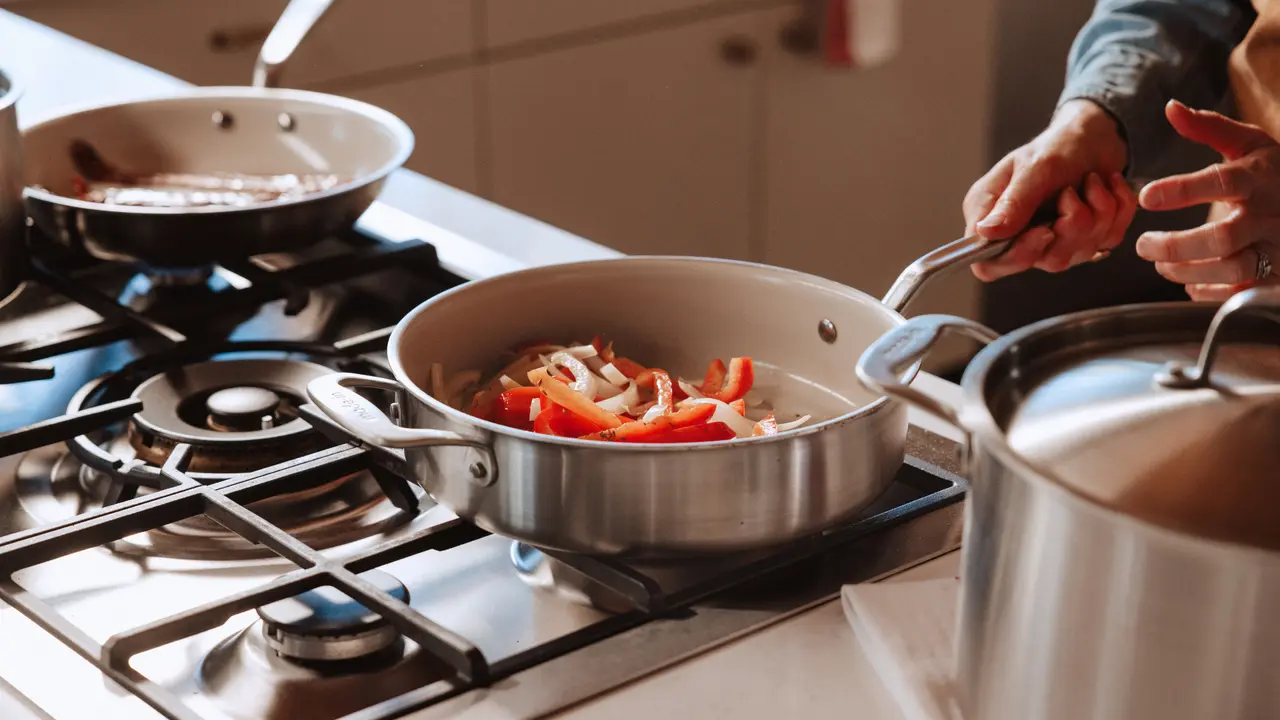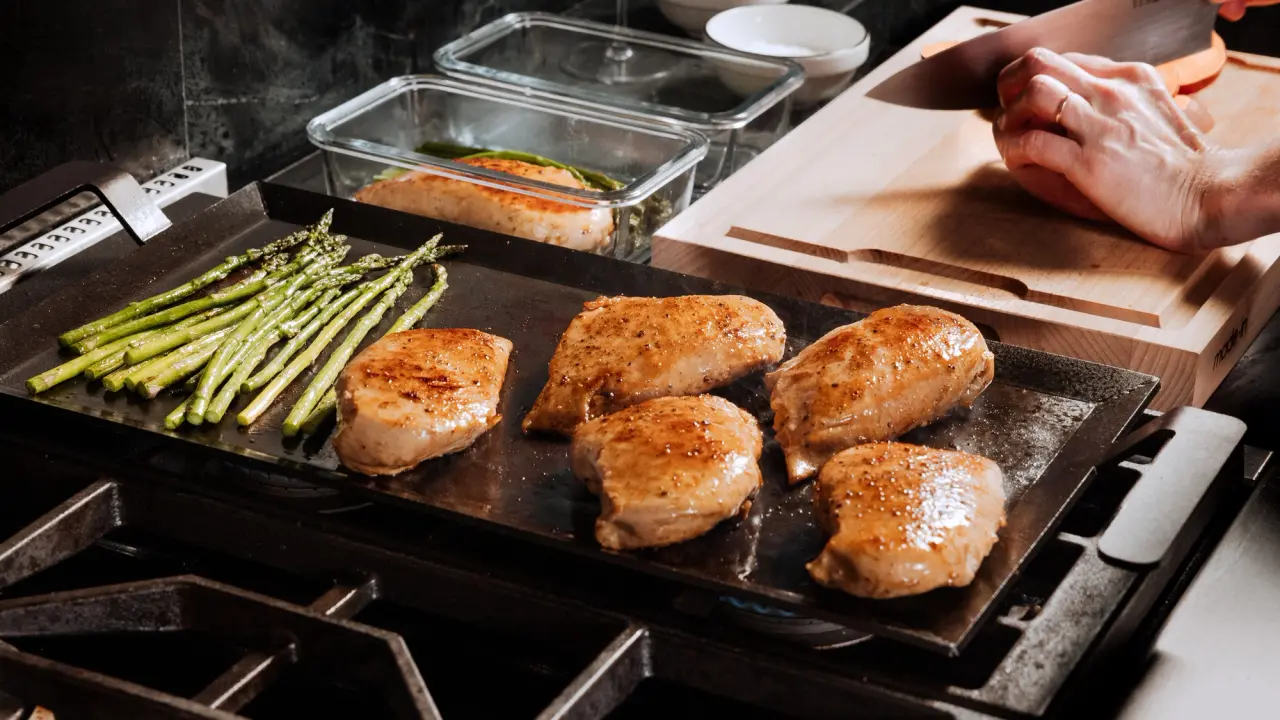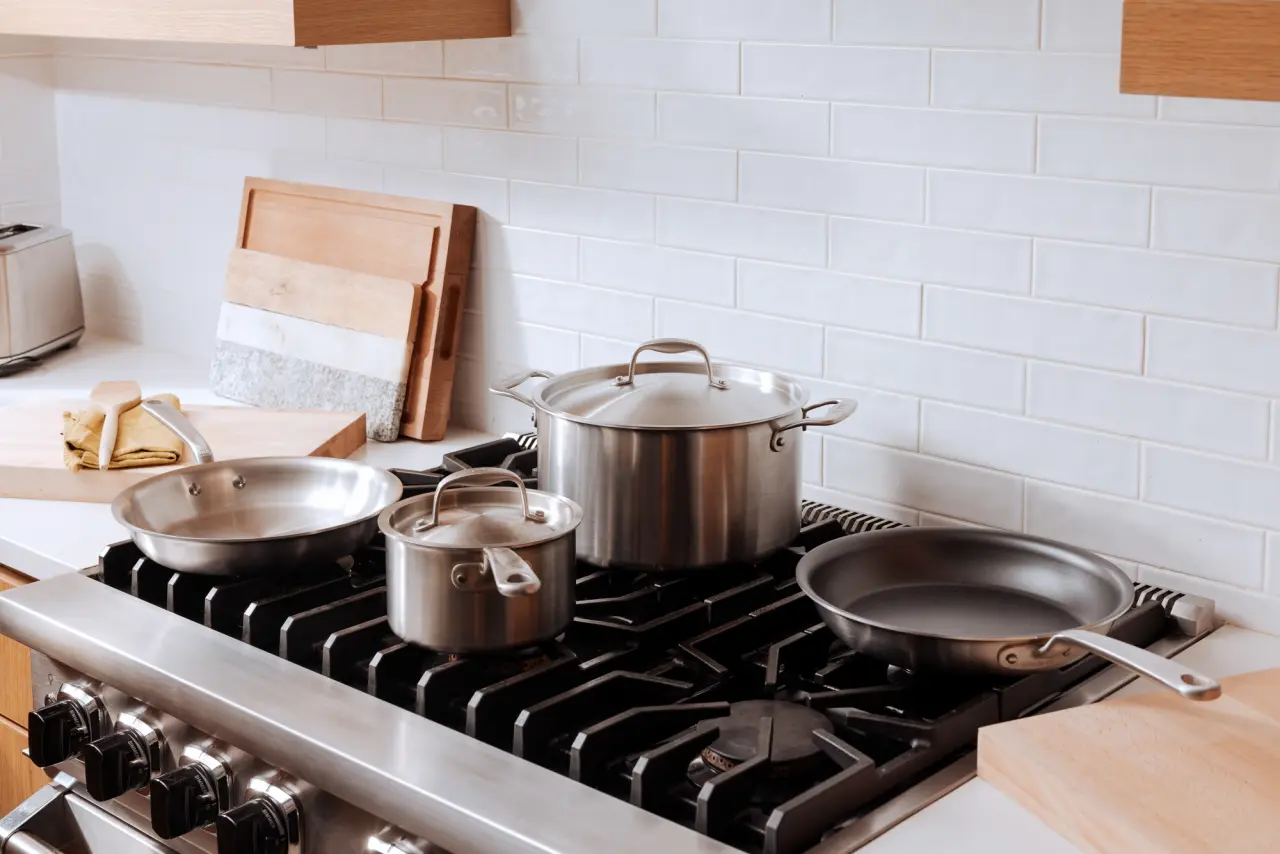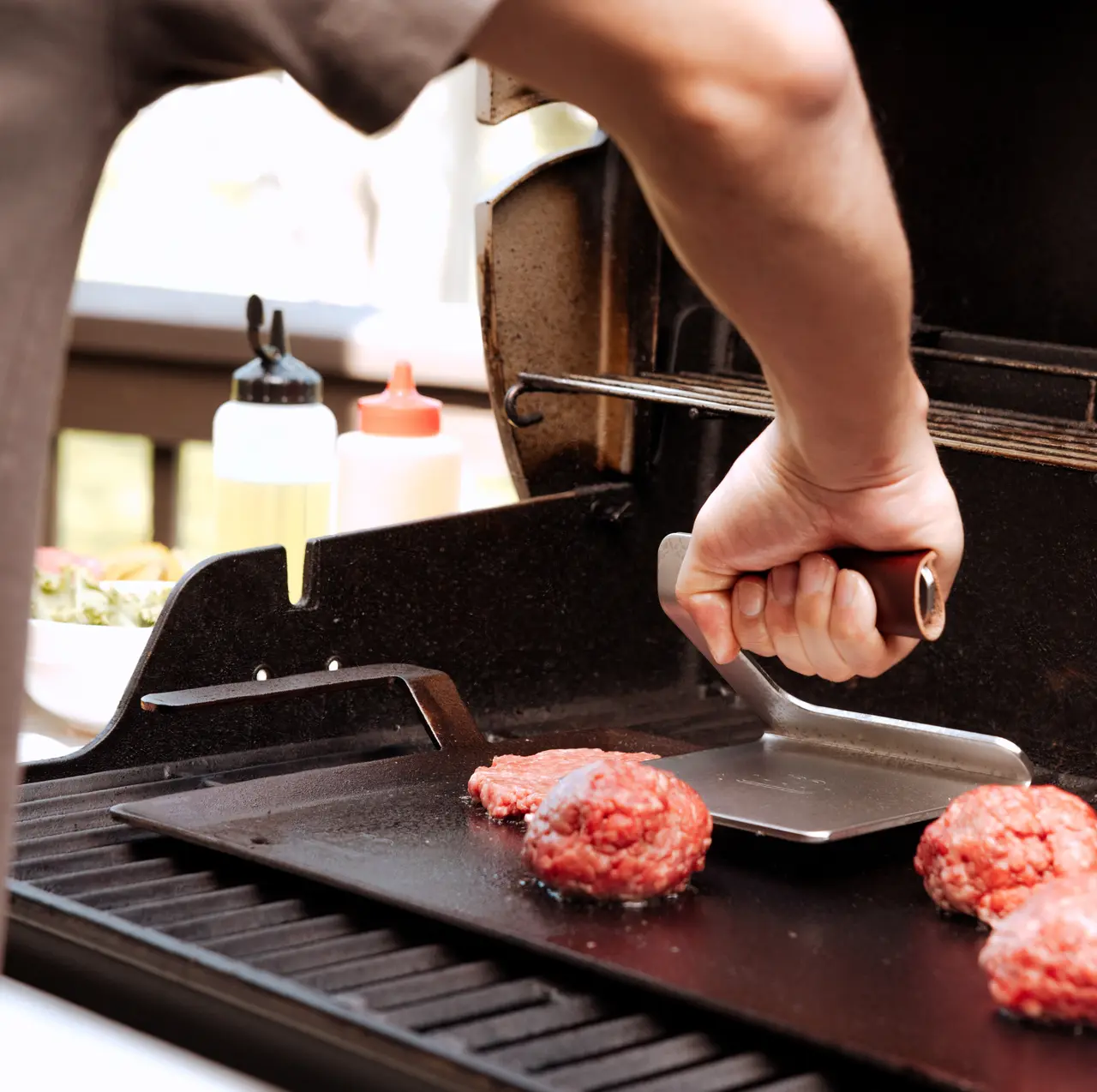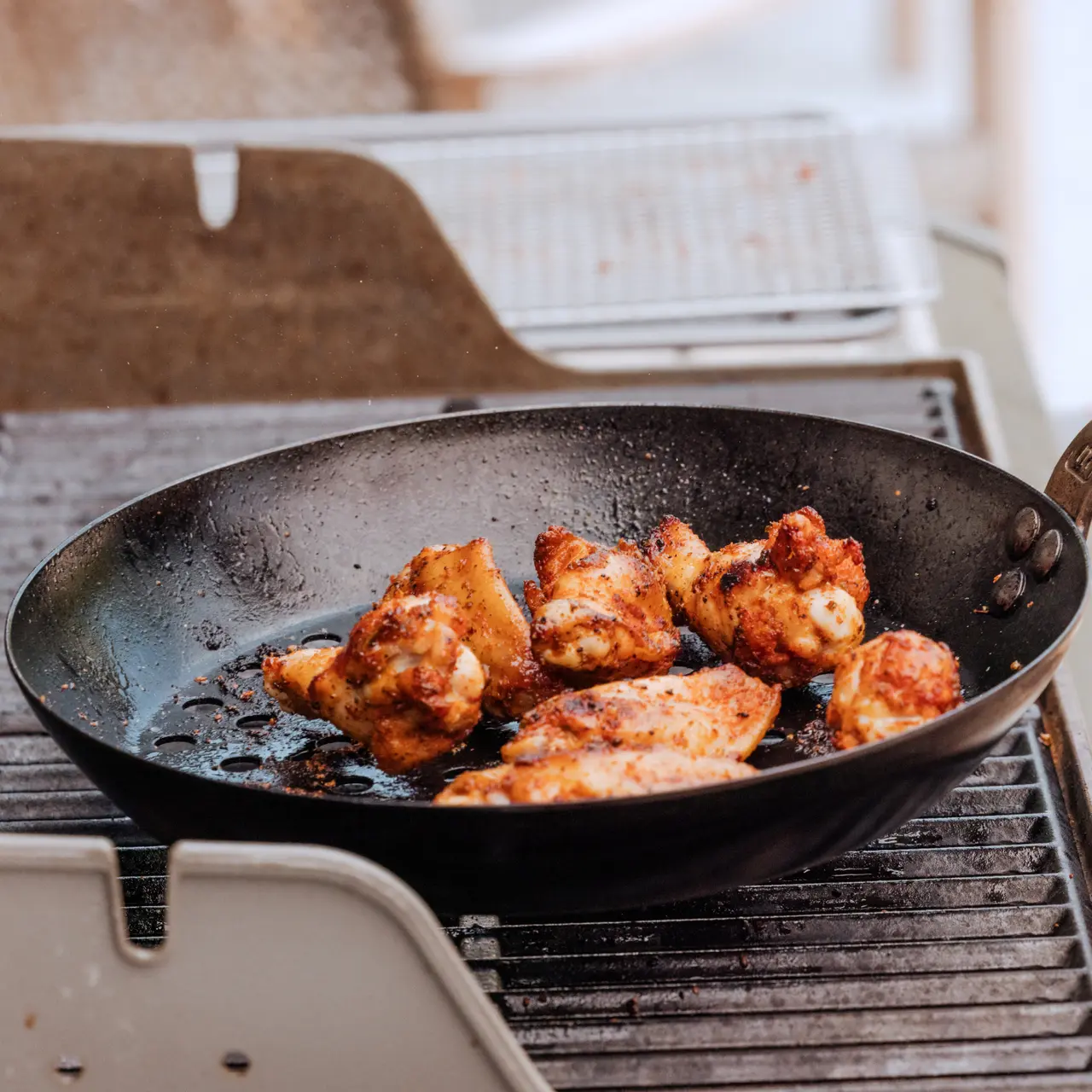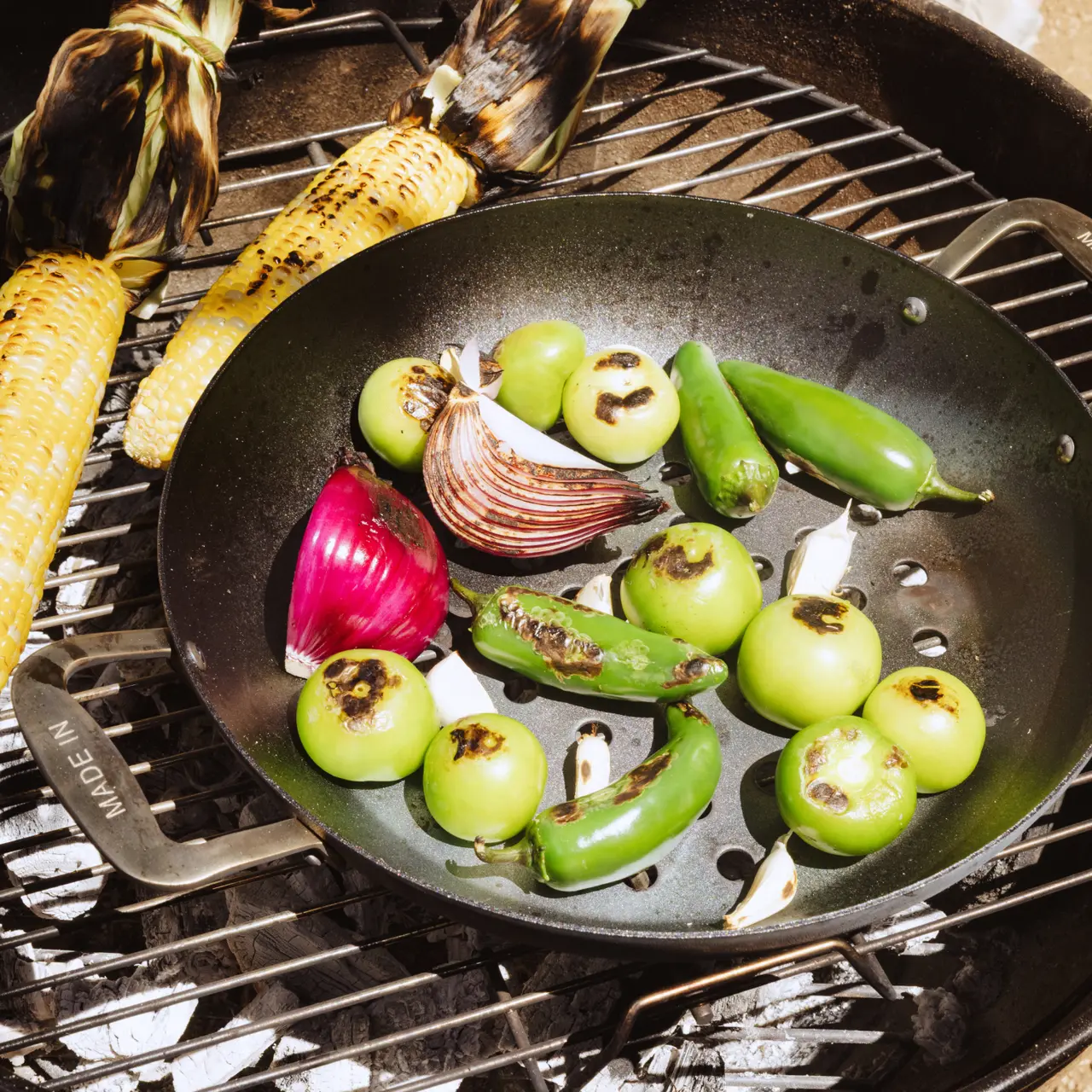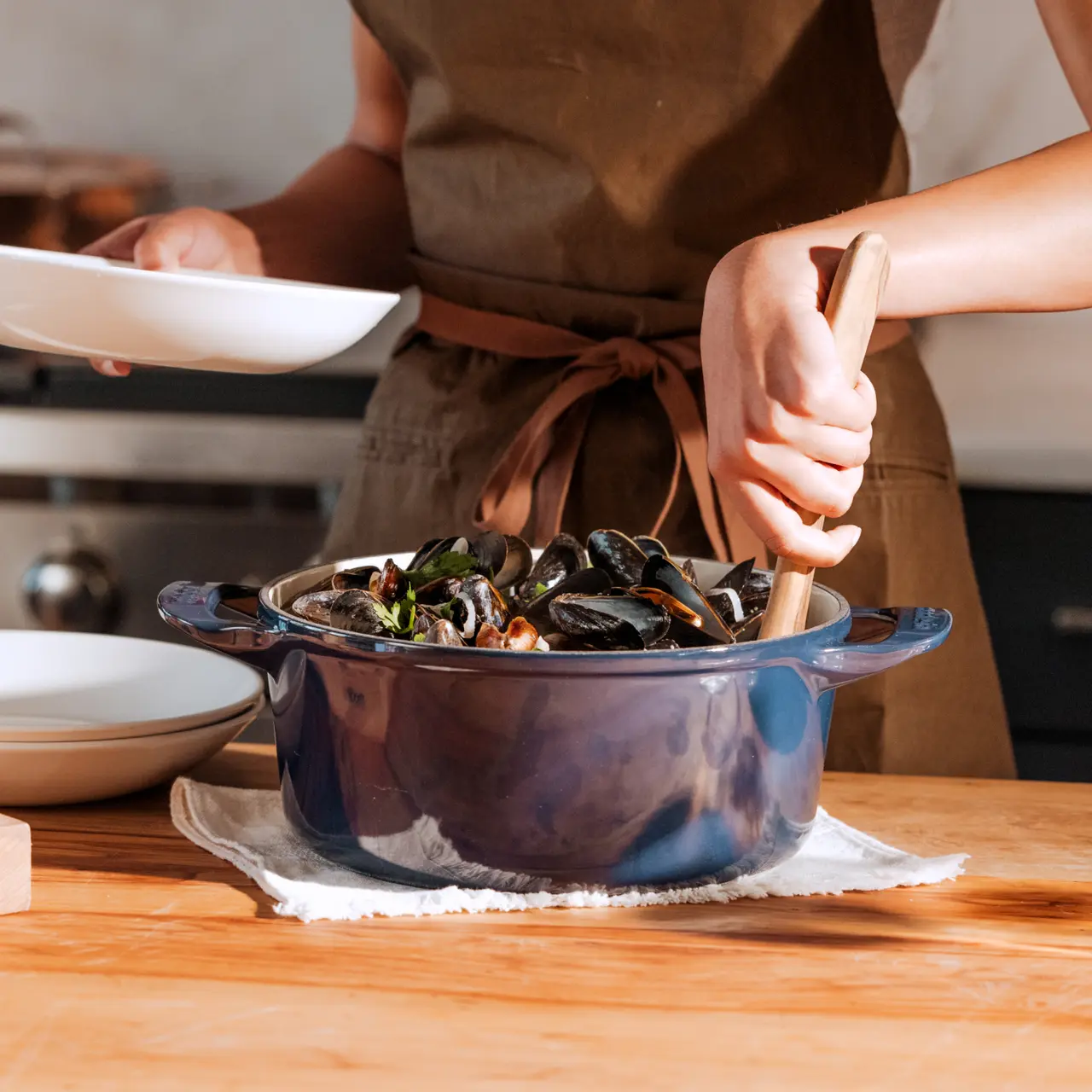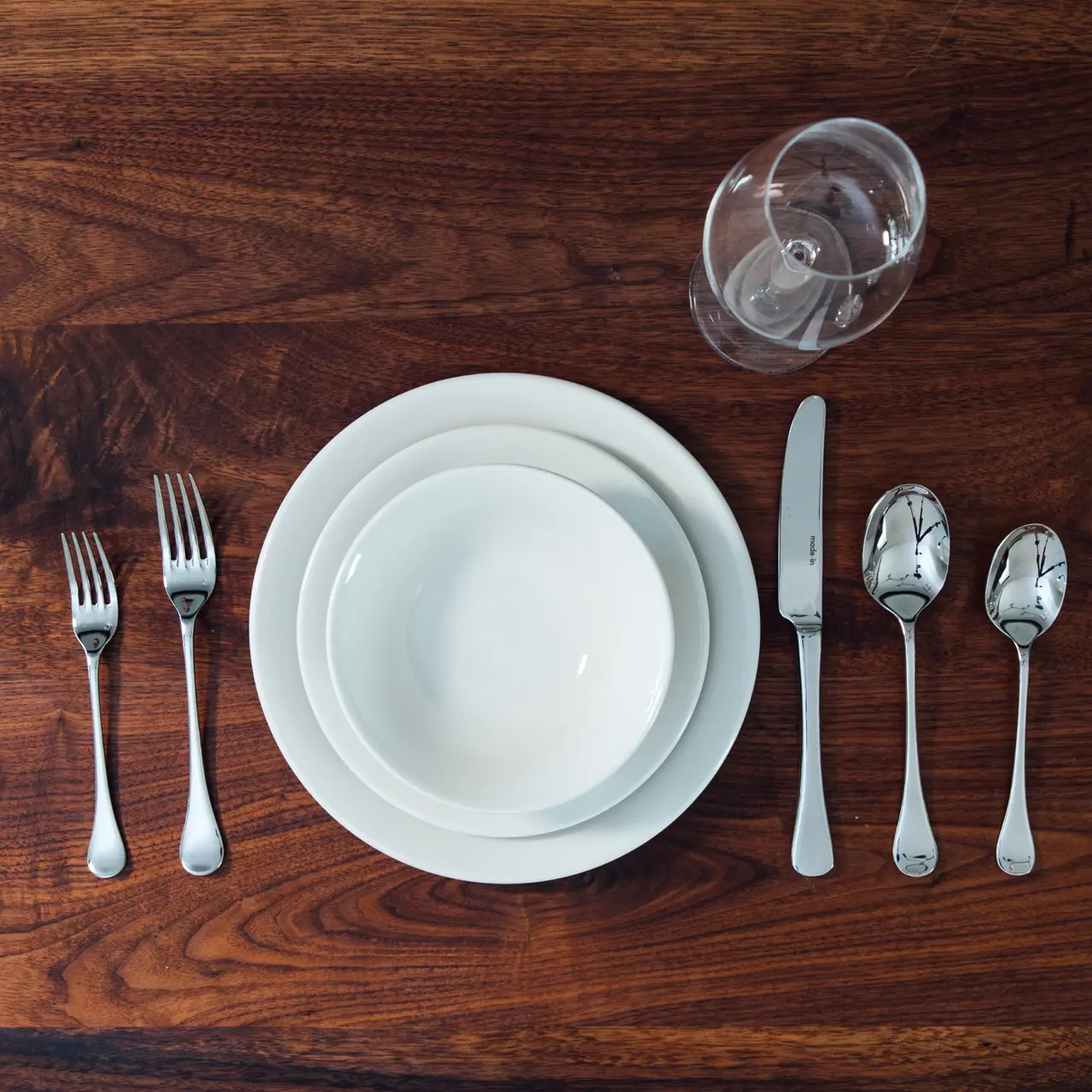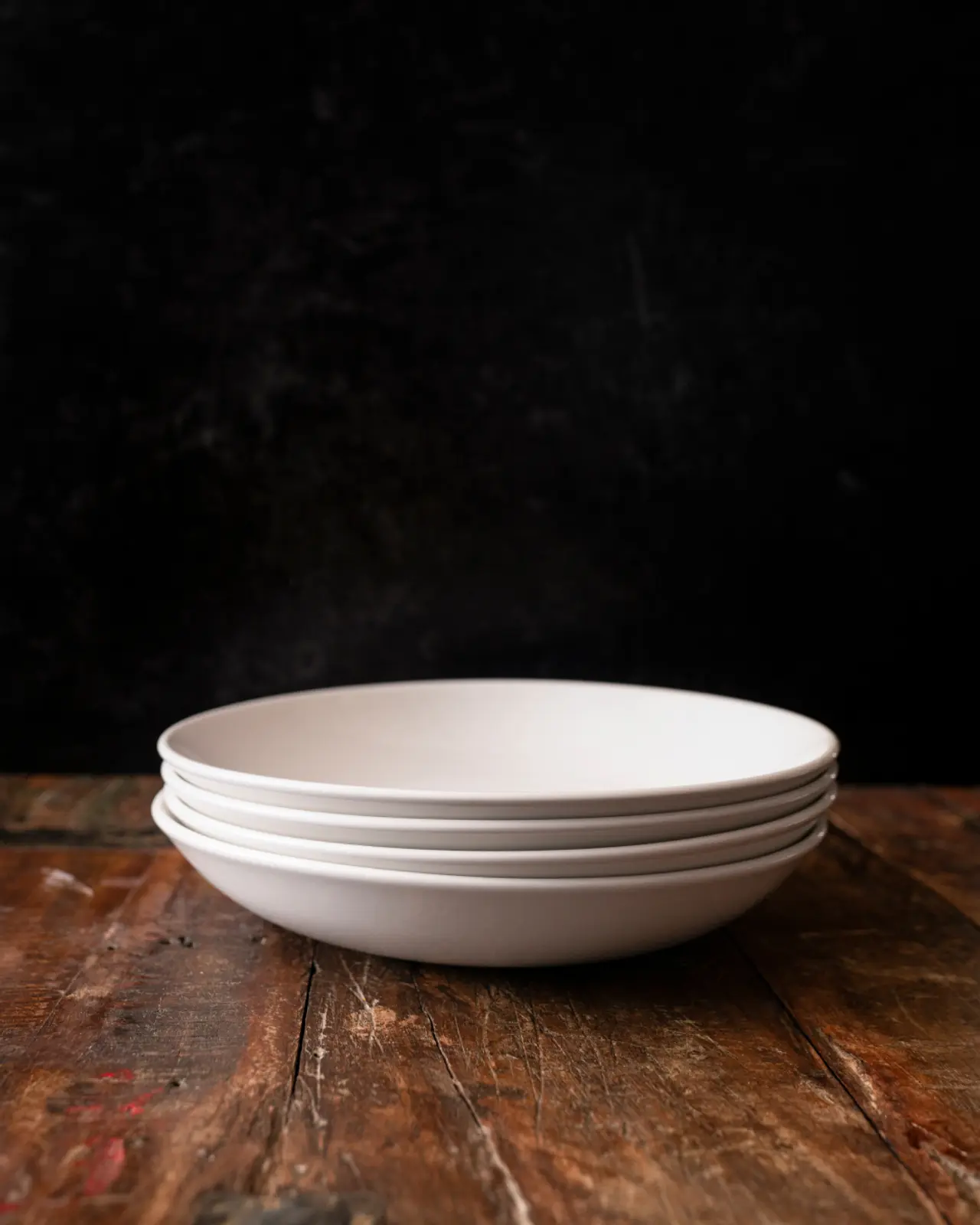Whether you're a seasoned home chef or just starting out, there’s nothing more important than having quality tools in your kitchen. But before you start shopping, it’s essential to understand the differences between the types of cookware available.
Here, we’ll be focusing on the differences between ceramic and stainless steel cookware, two popular materials beloved by home chefs. Let’s dive in.
Understanding Ceramic Cookware

Ceramic cookware doesn’t refer to earthenware pots and pans that are fired in a kiln, but those constructed from metal with a silicon-based coating that mimics the no-stick properties of non stick cookware. This allows for an easy release of food, and is becoming an increasingly popular, chemical-free option over traditional coated non stick pans.
In practice, ceramic cookware differs wildly from brand to brand depending on the materials used during the manufacturing process. We've found that some brands (like the ones touting colorful pans on social media) wear out quickly due to using inferior materials like aluminum, or being advertised as high-heat capable when they're not.
High-quality ceramic, on the other hand, can be just as easy to cook with as its predecessor—our CeramiClad™ Non Stick Collection features the same 5-ply base as our chef-loved Stainless Clad, ensuring easy, stick-free cooking.
Understanding Stainless Steel Cookware
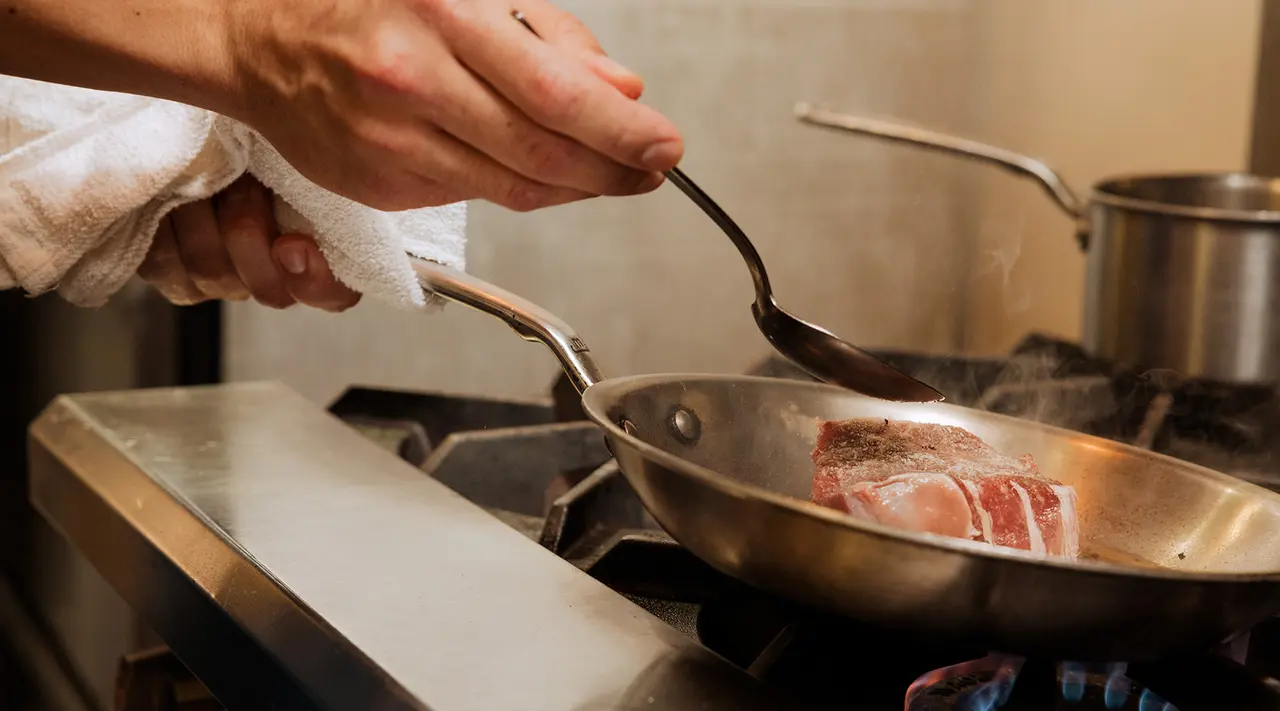
A blend of various metal elements, including steel, carbon, and chromium, stainless steel cookware offers superior durability, heat conduction, and resistance to rust, stains, and corrosion. As a result, it's known to be a preferred choice for professional chefs worldwide.
Cladded cookware is a popular subtype of stainless steel cookware, where layers of different metals are combined to deliver exceptional performance and heat distribution (hence the name of our Stainless Clad Collection). The core of our Stainless Clad line is aluminum and aluminum alloy, but the outer stainless steel cladding ensures that each piece is induction compatible.
Ceramic vs. Stainless: Which Is Better?
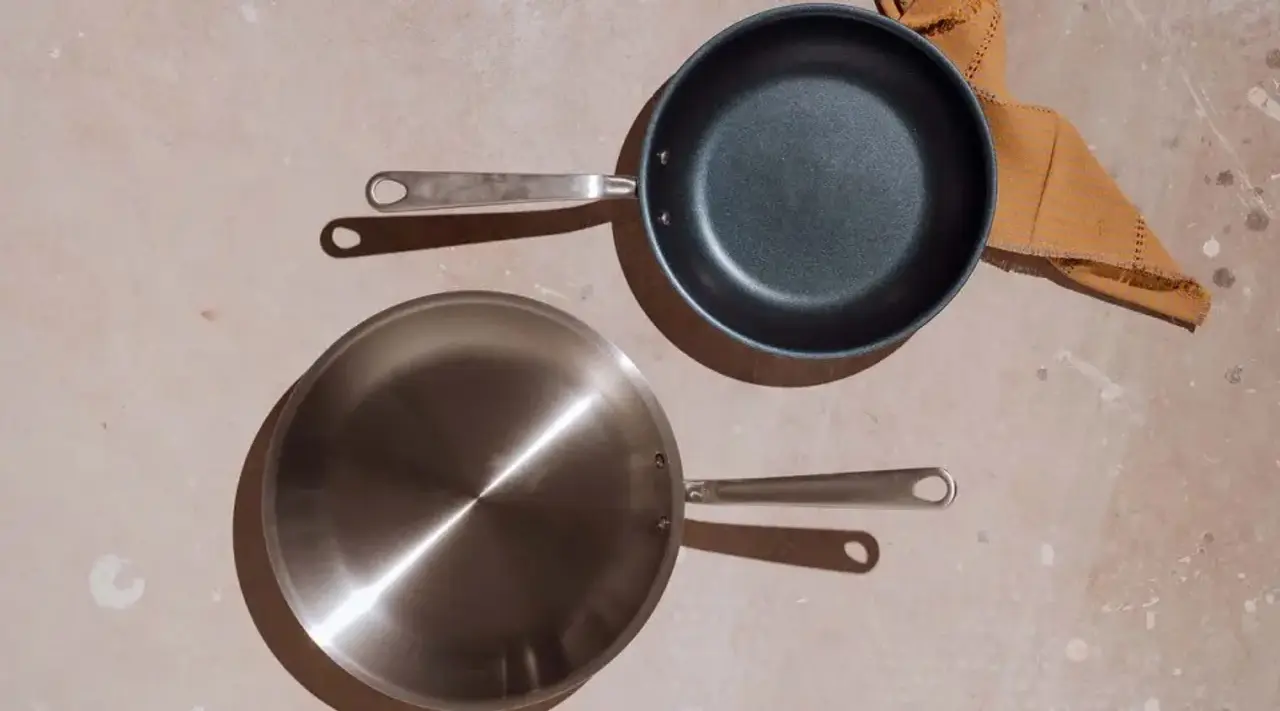
The answer to whether ceramic or stainless is better is, simply, both—for different applications. Stainless cookware is preferred by both home and professional chefs, while ceramic has remained mostly an at-home cookware option. Here's why we suggest having them both on hand if you have the space and budget for them, and not viewing them as competitors.
Appearance
Stainless steel cookware offers a sleek, timeless aesthetic that fits in with a variety of kitchen décor. Stainless steel maintains its shine and luster over time, and can be used and abused for years.
Ceramic, on the other hand, can come in a range of colors and materials—you've likely seen eye-catching pans in every color of the rainbow on your social media.
Construction and Materials
With its high-quality metal alloys, providing excellent heat distribution and durability, stainless steel is known for its superior construction, whether 18/8 or 18/10 construction.
Lower-quality ceramic brands, on the other hand, can suffer from uneven heating and a lower level of durability over time thanks to the self-sacrificing nature of the silicon-based coating. When shopping for the best ceramic cookware, look for pans made with a stainless steel or cladded base over aluminum—like our CeramiClad™ collection—as this will hold up better over time, resist warping, and ensure even heating.
Cooking Applications and Experience
Stainless steel provides an incredibly versatile cooking experience suitable for a range of methods, recipes, and beyond. While ceramic cookware is easy to clean and is conveniently non stick, its heat limitations and lack of durability can have an impact on its uses in the kitchen—think of it as better suited for sautéed veggies, eggs, fish, and other low-impact, stick-prone dishes vs. using it for higher heat and higher intensity methods like reverse searing a steak.
Durability and Longevity
When it comes to durability and longevity, stainless steel takes the cake. It's both easy to care for and highly resistant to chips, cracks, and wear and tear, and can last several decades (or longer—there’s a reason these are often referred to as the workhorses of home and professional kitchens).
Ceramic, on the other hand, doesn't have the same lifespan as a quality stainless pan. The nature of the coating is self-sacrificing, meaning at some point the it will wear off. For inferior quality pans, this can happen after a couple months of use; whereas a higher-quality pan can get you a few years out of your coating. Our CeramiClad™ collection features the same base as our beloved Stainless Clad collection, which ensures a longer-lasting, better constructed pan over the competition.
Ready to Shop?
Investing in high-quality cookware makes a difference, no matter the material—which is why both our Stainless Clad and CeramiClad™ Non Stick collections feature the same 5-ply, induction compatible base. This ensures the cooking experience is seamless and enjoyable, no matter if you're looking to get a serious sear on your steak or are after an easier Sunday breakfast clean-up.
